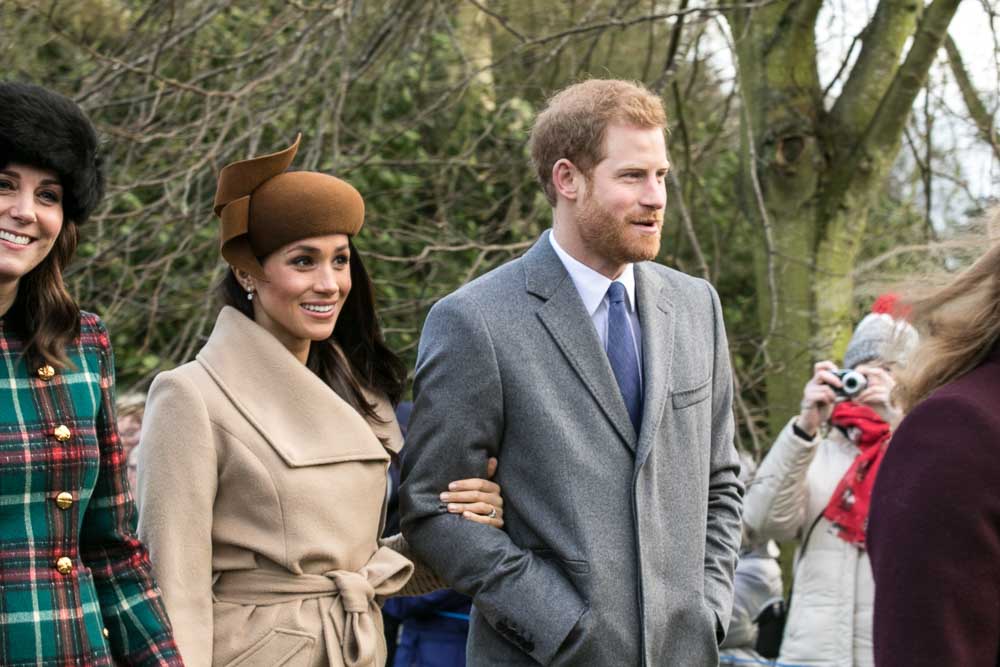

“We’re very much not a racist family.”
On March 11 and in response to an explosive and exclusive interview featuring Meghan Markle and Harry on why they left the monarchy, Prince William – heir to the English throne – told the press, “We’re very much not a racist family.”
This came after Buckingham Palace released the following public statement, two days after the estranged couple’s interview with Oprah Winfrey:
“The whole family is saddened to learn the full extent of how challenging the last few years have been for Harry and Meghan. The issues raised, particularly that of race, are concerning,” the statement read. “While some recollections may vary, they are taken very seriously and will be addressed by the family privately. Harry, Meghan and Archie will always be much loved family members.”
The very public debacle brings back the age old question of monarchy versus modernity – how much silence is too much silence?
Tradition has it that the monarchy should remain diplomatic in all public matters regarding the state. The monarchy is a figurehead and a century-long institution that does not get politically charged, motivated or portray public opinions on even the most controversial of matters. The statement issued by the palace is a true embodiment of this, remaining seemingly unshaked even in the face of bombshell accusations.
In the March 7 interview, Markle revealed to Winfrey that she felt suicidal, suffered mental health tribulations and felt unprotected by “the firm.” In addition, she claimed that senior members of the royal family expressed concern over how dark the color of her son’s skin would be.
With mental health awareness now at the forefront of contemporary society and movements like Black Lives Matter taking the world by storm, Markle’s bombshell revelation has shattered the very bedrock and foundation of the British establishment.
Currently, it is a he-said, she-said debate with little to no proof. Thus, questions must be asked, and I, as a journalist, intend to ask them.
According to Markle, the royal family has and continues not to speak out against the tabloids’ years-long racist smear campaign against her. However, should we expect anything else in an establishment with a tradition of maintaining a cordial relationship with all, including the press?
A royal wedding was given. Markle felt no ill will by the queen herself. And Charles even walked her down the aisle, substituting in for her own father on her wedding day.
Does this not speak to their acceptance?
Markle did not release the name of who commented on Archie’s skin tone, as it is a private family matter. Without specifics, is it not just a hearsay accusation that begs to be questioned itself?
Still, let’s question the idea of racism in the commonwealth.
Have they always treated Black nations with respect? Botswana, Cameroon, Gambia, Ghana, Kenya, Kingdom of Eswatini, Lesotho and Malawi are all a part of the commonwealth and have predominantly Black citizens.
Is it equal to even being a part of the commonwealth or is this an antiquated system? Hasn’t the queen’s tours and concern for these nations and people over a lifelong career dedicated to service of it’s people sufficed as enough to prove a lack of racism in the royal establishment?
Both princes are strong advocates for mental health through their charity, Heads Together. After losing their mother, Princess Diana, in 1997 to a car accident, the brothers discovered mental health was an issue they’re passionate about, focusing their energy on Heads Together.
The Royal Foundation and the The Duke and Duchess of Cambridge drafted a campaign to tackle the stigma behind mental health with fundraising for new, innovative mental health services.
Why would the royal family deny mental health protection, a cause it is so passionate about, for members of its own family?
Harry claims he hadn’t discussed Markle’s issues with the family, even though she had voiced her troubles. From this, it should be questioned whether communication between the royal family should be better.
In 1995, Princess Diana gave a chilling in-depth interview with Martin Bashir about her relations with the royal family. It was the first time a member of the royal family had gone public with accusations against the British establishment.
Not since then has a member of the royal family spoken out publicly about concerns. Markle’s interview with Oprah Winfrey echoes the memory of Diana’s interview.
The very contemporary issues she addresses lead the world to question the tradition of British monarchy and how much silence is too much silence. In a modern society, race relations and mental health are two issues that must be discussed.





